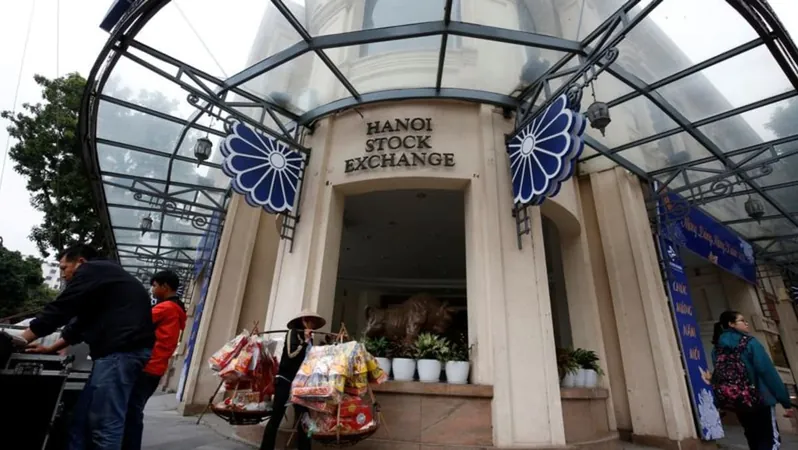
Vietnam Takes Bold Step to Attract Foreign Investment: Pre-Funding Requirement for Foreign Investors Axed!
2024-09-19
HANOI: A Groundbreaking Move
In a groundbreaking move, Vietnam's finance ministry has announced the elimination of the pre-funding requirement for foreign investors in equity transactions, set to take effect on November 2. This significant policy shift aims to boost the nation's chances of reclassification as an emerging market, a change that could unlock massive investment opportunities.
Background on Pre-Funding Requirement
For years, foreign investors have faced a major hurdle in the form of the full pre-funding rule, which required them to completely transfer funds before purchasing any securities. This stipulation has been a stumbling block for the Ho Chi Minh City Stock Exchange, hindering its growth and appeal in the global financial arena.
Current Market Classification
Currently, both the MSCI and FTSE indices categorize Vietnam as a frontier market. This classification has kept many international funds, family offices, and institutional investors at bay, limiting their ability to invest in the promising Vietnamese market, valued at approximately $200 billion.
New Regulations for Brokerage Firms
Under the newly issued circular, brokerage firms will now have the authority to assure foreign investors when they make share purchases. The circular specifies that these brokers will evaluate the risk associated with foreign institutional investors and determine the pre-funding ratio required for their purchases. In instances where an overseas investor fails to finalize the payment, the brokerage will assume the financial liability.
Implications of the Timing
This policy adjustment comes just ahead of the FTSE's upcoming announcement regarding market classifications on October 8. However, sources close to the matter suggest that, despite these reforms, the likelihood of FTSE upgrading Vietnam's market status in the October report remains slim.
Need for Further Reforms
While the removal of the pre-funding requirement is a crucial step forward, more reforms are essential to attract foreign investment. Notably, stringent limits on foreign ownership in listed companies still pose challenges.
Projected Economic Benefits
Experts from the World Bank have projected that if Vietnam secures an upgrade to emerging market status, the country could see net capital inflows ranging from $5 billion to $25 billion by the end of the decade. Such an influx would not only bolster the market but also foster economic growth and development across the nation.
Conclusion and Outlook
As Vietnam navigates these changes, investors and market analysts will be keenly watching to see how this pivotal decision will reshape the investment landscape in one of Southeast Asia's fastest-growing economies. Will this be the turning point for Vietnam's financial market? Stay tuned!







 Brasil (PT)
Brasil (PT)
 Canada (EN)
Canada (EN)
 Chile (ES)
Chile (ES)
 España (ES)
España (ES)
 France (FR)
France (FR)
 Hong Kong (EN)
Hong Kong (EN)
 Italia (IT)
Italia (IT)
 日本 (JA)
日本 (JA)
 Magyarország (HU)
Magyarország (HU)
 Norge (NO)
Norge (NO)
 Polska (PL)
Polska (PL)
 Schweiz (DE)
Schweiz (DE)
 Singapore (EN)
Singapore (EN)
 Sverige (SV)
Sverige (SV)
 Suomi (FI)
Suomi (FI)
 Türkiye (TR)
Türkiye (TR)